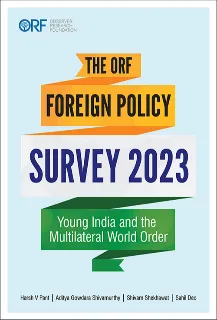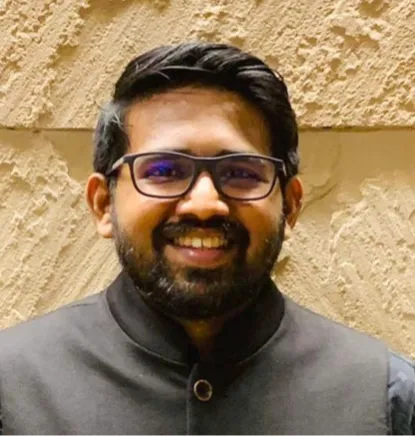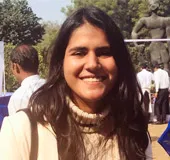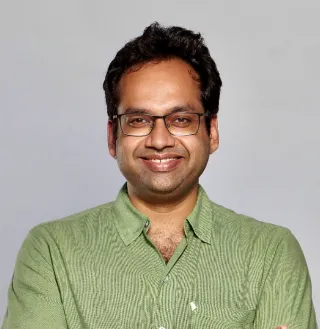Key Findings
- India’s urban youth rated the country’s overall foreign policy positively: 35 percent graded it very good and 48 percent, good. The overall support (83 percent) is 6 percentage points more than in last year’s survey, and 11 percentage points higher than in 2021.
- Asked about the current challenges to India’s foreign policy, 90 percent of the respondents named global pandemics as the most pressing. Other concerns were terrorism (88 percent), post-COVID economic slowdown (86 percent), cyber security (85 percent), and climate change (85 percent).
- Consistent with last year’s survey, multilateral platforms were chosen as the most preferred mode of international engagement by the country’s urban youth (47 percent).
- Eighty-eight percent of the respondents considered India’s bid to secure permanent membership to the United Nations Security Council as an important goal—only 2 percentage points lower than the proportion found in the 2021 and 2022 editions of the survey, showing continued appreciation for the apex multilateral institution of the world.
- India’s G20 presidency was regarded as an overall success, with 83 percent of the surveyed youth deeming it effective in addressing the country’s concerns. In contrast, in the 2022 survey, 74 percent of the respondents did not acknowledge the G20’s importance in India’s foreign policy calculus.
- All of India’s neighbours, except for Pakistan and Afghanistan, received a vote of confidence from a majority of the respondents. With a two-point higher result than in the 2022 survey, Nepal continues to receive the highest vote of trust, this time from 72 percent of the respondents.
- A majority of the respondents were of the view that India’s connectivity with its neighbours has been adequate across all the sectors, particularly in technology, and people-to-people and transport connectivity (86 percent).
- Respondents were satisfied with India’s relations with the global powers, except that with China. The bilateral relationship that garnered the highest positive range (from 81 percent of the respondents) is that with the US.
- India’s urban youth say the US (81 percent), Russia (77 percent), Australia (77 percent), and Japan (76 percent) will likely be the country’s leading partners in the coming decade. In 2022 too, the US received the highest vote (85 percent).
- When asked about India’s appropriate position should US-China tensions escalate, 44 percent said it should adopt a neutral stance, and another 44 percent advocated for cooperation with the US. In the 2022 survey, 49 percent believed India should remain neutral, and 41 percent said the country should cooperate with the US—indicating a notable shift this year to partnering with the US.
- A large majority (85 percent) of respondents agreed that the US should support India should tensions between India and China heighten.
- Border conflicts with China are a significant challenge for India, according to 84 percent of the respondents. Eighty percent believed that the 2020 Galwan clashes had severely reduced their trust in China; at the same time, 58 percent advocated for more economic engagements with China. The 2022 edition of the survey recorded the same proportion (84 percent) of respondents expressing concern over border conflicts with China, and 54 percent advocating for better economic ties between India and China.
- Majority of the urban youth (80 percent) agreed that India should remain neutral in the Russia-Ukraine war, and 82 percent said India should look beyond Russia for defence partnerships. In the 2022 survey, 68 percent of respondents expressed concern about closer Russia-China relations; this year, there was an increase in this sentiment by 8 percentage points.
- A good majority (74 percent) agreed that the Quad was an apt means to effectively promote India’s interests. Eighty percent of respondents expressed a desire for India and the US to strengthen the Quad against emerging challenges.
- India’s urban youth are positive about trade, with 75 percent agreeing that free trade agreements are a means of generating jobs and raising standards of living.
Introduction
The year 2023 was seminal for India as it sat at the helm of the G20. As soon as the presidency started in late 2022, there was optimism and apprehension alike about whether India would succeed in its agenda of placing the Global South at the centre of international governance. It was hoped that New Delhi’s tenure would enable it to fulfil its leadership ambitions as the world struggled to find its feet after the COVID-19 pandemic.1 In September 2023, India successfully hosted the G20 Leaders’ Summit and displayed its ability to navigate the polarisation within the group: The summit passed the New Delhi Leaders’ Declaration, and announced the inclusion of the African Union (AU) in the grouping, effectively making it G20+1.
Throughout its presidency, India took on a leading role in promoting globalisation and securing the world order via multilateral reforms. It conducted robust engagements with the countries of the Global South, who are both the primary stakeholders, and the vanguards, of this global transformation. In the initial months of its G20 presidency, India organised the first edition of Voice of the Global South Summit (VOGSS) to tackle the core issues of developing countries, thereby laying the ground for an inclusive, ambitious, action-oriented, and decisive G20 leadership. At the end of its presidency, India hosted the second VOGSS that deliberated the ways by which the progress made in the past year can be sustained and channelled towards the reform of the current order.
At the G20 Summit, the leaders resolved to come together amid the unprecedented challenges facing the Global South. In their remarks at the Summit, the leaders underscored the multiple crises faced by the Global South in recent years, including the COVID-19 pandemic, worsening climate change, rising inflation, and food and energy insecurities resulting from escalating geopolitical tensions and which have created additional impediments to efforts to eradicate poverty. There were also challenges related to access to concessional financing, and the slowdown in the achievement of the Sustainable Development Goals (SDGs). The leaders, in their interventions, agreed that for countries of the Global South, many of these challenges merely reflect the familiar struggles of the past.
Steering the Leaders’ Summit to passing the Declaration that adopted 87 outcome documents and accepted 118 other frameworks, action points, and texts across various issues, New Delhi succeeded in championing the demands of the Global South for sustainable and inclusive development, digital transformation, reforming multilateral institutions, and fostering peace. The Summit’s success added to the hope that the global community could be getting closer to the aim of a reformed international order. After all, the G20 presidency was successively going to be held by countries of the Global South, and BRICS and the Shanghai Cooperation Organisation (SCO) expanded their respective memberships.
Yet, challenges persist, and the past few years have indeed been tumultuous. The far-reaching, prolonged impacts of the COVID-19 pandemic, the widening differences between the West and Russia amid the war in Ukraine, and China’s attempts to redefine the ethos and structures of global governance and the political map of Asia have all led to the virtual paralysis of the most crucial multilateral platforms. There is an emerging consensus on the need to overhaul the current world order and pave the way for an alternative that will be more representative and responsive to global challenges, whether legacy or new.
In India’s immediate neighbourhood, the ongoing political and economic crises in Pakistan and the return of the Taliban in Afghanistan have raised concerns about the threat of terrorism and affected New Delhi’s outreach to the Central Asian Republics. China’s forays into Sri Lanka, the Maldives, and Nepal have also renewed concerns about its increasing influence in the region. At the global level, New Delhi has had to manage its historical relationship with Russia amid the ongoing rift between Moscow and the West and the growing bonhomie between Russia and China. And as we enter 2024, the lingering shadows of the Russia-Ukraine war and the COVID-19 pandemic are only being compounded by the emergence of new conflicts and the resumption of old ones. The ongoing crisis in West Asia has again raised concerns, with the civilian toll from the conflicts rising every day.
As New Delhi prepares to navigate this rough terrain through multilateral and bilateral mechanisms, it is imperative to understand how its policy responses and diplomatic acumen are being perceived by the country’s youth. This edition of the annual ORF Foreign Policy Survey, which focuses on multilateralism, seeks to assist in understanding how the country’s urban youth view the government’s policy choices and its engagement with the world. It aims to aid in deciphering what India’s urban youth regard to be the biggest challenges facing the country and the region, and how they expect the country to respond to those challenges as it emerges as a pivotal power in the new world order.
Read the report here.
The views expressed above belong to the author(s). ORF research and analyses now available on Telegram! Click here to access our curated content — blogs, longforms and interviews.

 PDF Download
PDF Download



 PREV
PREV





